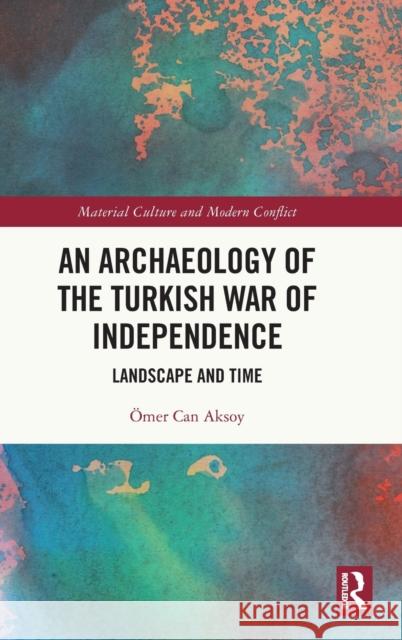An Archaeology of the Turkish War of Independence: Landscape and Time » książka
An Archaeology of the Turkish War of Independence: Landscape and Time
ISBN-13: 9780367757120 / Angielski / Twarda / 2023 / 176 str.
An Archaeology of the Turkish War of Independence: Landscape and Time
ISBN-13: 9780367757120 / Angielski / Twarda / 2023 / 176 str.
(netto: 622,01 VAT: 5%)
Najniższa cena z 30 dni: 629,67
ok. 22 dni roboczych
Bez gwarancji dostawy przed świętami
Darmowa dostawa!
This book is about the conflict which resolved the Greek-Turkish War of 1919-1922: the Great Offensive.
This book is about the conflict which resolved the Greek–Turkish War of 1919–1922: the Great Offensive. On 26 August 1922, the army of the GNA executed the Great Offensive against the Greek defence line extending from the Bay of Gemlik to the Meander River. The Turkish Forces split the Greek Army into two large groups, annihilated one of the groups in the field at the Battle of Dumlupınar on 30 August and pursued the remaining forces of the Greek Army towards the Aegean and Marmara coasts until 18 September. Within these 24 days, the face of Western Anatolia changed unalterably: numerous towns, villages and cities of Western Anatolia were reduced to ashes.
This conflict was a turning point in the histories of Turkey and Greece, as it played a significant role in shaping the present-day demographic and geopolitical landscapes of both nations. It resulted in a population exchange in 1923 that dramatically altered the lives of Muslims in Greece and Greek Orthodox people in Turkey and paved the way to the foundation of the Republic of Turkey. Despite the outcome of this war and the existence of a rich literature on its military and political history, the landscapes, memoryscapes and material culture have not been systematically investigated.
This book bridges that gap via an archaeological, historical and oral-historical study of the Great Offensive and its aftermath. With its wide chronological perspective, this book is not a pure analysis of a historical war, it is instead a journey into the foundation myth of the Turkish Republic and the ideological foundations of the Turkish state.











